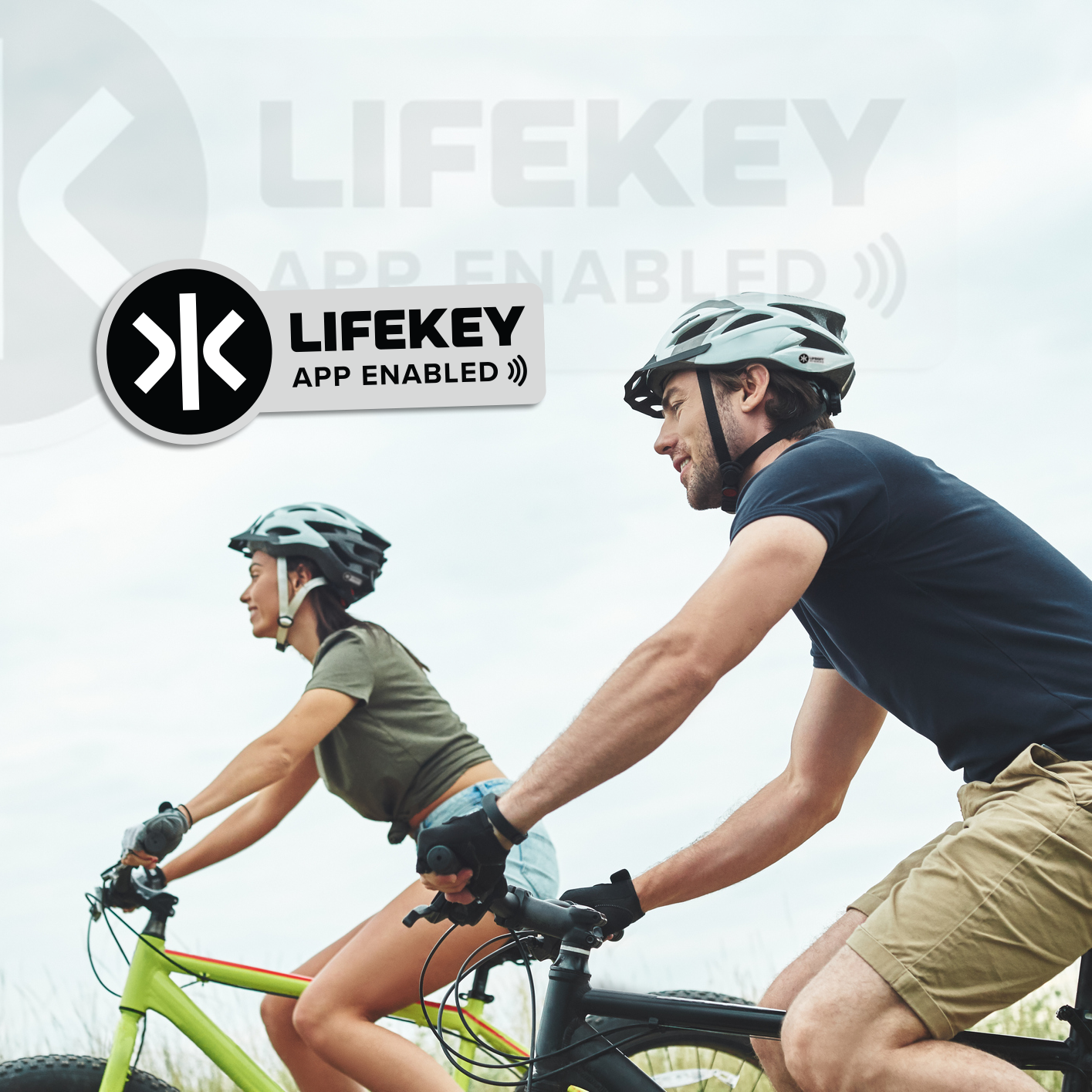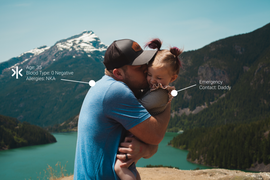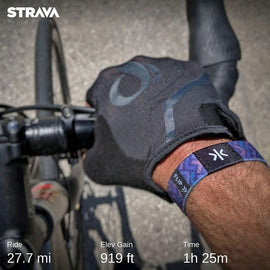By Carrie Haderlie, Wyoming Business Report
Most people would worry a little if their business partner decided to bicycle across 10 states.
What if they are out of cell service at a critical moment? Or worse, what if in the moment that they need help the most, the people around them don’t know where to start?
But Wyoming entrepreneur Jason Kintzler didn’t worry, exactly. He problem solved, inventing Lifekey, a product designed to keep his friend – and people all over – safe.
“I’m always looking at existing products and processes and wondering how I could fix them, essentially, (thinking) what could be 10 times better?” Kintzler said. “So when Fabian Lobera, our chief operating officer at Pitchengine, started cycling more frequently, I started to think more and more about his safety.”
Kintzler is the founder and CEO of Pitchengine, a web-based public relations and marketing software company headquartered in Lander. Pitchengine products are used by more than 50,000 brands worldwide, including Walmart, Mastercard and Budweiser. Kintzler is also a member of the Wyoming Business Council Board of Directors.
Last summer, Lobera took part in the Trans Am Bike Race, an unassisted, self-supported bike race that spans 4,200 miles.
“Basically, he was going to be on his own for several weeks with little to no safety net,” Kintzler said. “He carried a spot satellite tracker that would send a ping of his location every half hour or so to a map online somewhere. He also wore a low-tech wristband with his emergency contact’s phone number engraved on it.”
Kintzler knew there had to be a better way.
“I thought here had to be a better way to protect not only him, but other adventurous types who find themselves in more risky situations because of their outdoor or sporting lifestyles,” Kintzler said.
But there wasn’t – at least, not yet.
“Upon more investigation, there was an obvious opportunity there, so I started diving in,” he said.

And so Lifekey was born. Described as “a new way to connect to what matters most,” Lifekey is a system of smart wearables that provide instant access to personal health data and emergency notifications.
Much of our personal data today – the important stuff, beyond social media posts, Kintzler said – isn’t very accessible to any of us.
“Our medical information is locked away by our providers, and it’s not easy to get and share access to it,” he said. “This bothered me at a very fundamental level, so I saw an opportunity to enable people to store, manage and share access to their personal data when they need it most, especially in an emergency situation.”
Lifekey is a system that can be very empowering, especially for people who need to share specific critical data to provide insight to first-responders or other medical professionals.
For Kintzler, it was obvious that certain people have an immediate need for this technology: those with certain medical conditions, seniors with multiple medications and dosages, and even kids.
“What was more of a breakthrough was the idea that the healthiest people were going to be our target market,” he said. “Lifekey is designed and built for people with active lifestyles – waterproof, durable and made for the rigors of any adventure.”
Wearable devices have historically been either smart watches or fitness trackers, and Lifekey is an innovative system that stores personal data, making it accessible on a daily basis. It also provides the opportunity to connect group data, which could be a gamechanger for families.
“We’ve already entered partnerships with product manufacturers – existing popular brands – who will integrate Lifekey into their products, making us an ingredient brand,” Kintzler said. “It’s an amazing thing to be able to have global distribution and be in retailers worldwide within 18 months of launching.”
Lifekey will also run pilot programs with sports associations, including working with youth athletes to have their emergency medical data attached to their uniforms in a connected fabric patch. It also is looking to partner with senior living communities.
It’s been about a year since Lobera took his 10-state ride, and the Lifekey concept has evolved into so much more than a way to keep tabs on his friend, Kintzler said.
“But fundamentally it’s still the same: (it) empowers you to live untethered,” he said. “Our system of smart wearables are designed to connect you to what matters most, so you can worry less and do more.”


